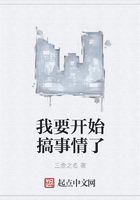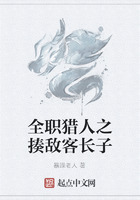The distinction between urban and rural tribes had one effect which is worth mention, both because it is without parallel elsewhere, and because to it Rome owed the preservation of her morality and the enlargement of her empire.We should have expected that the urban tribes would soon monopolise power and honours, and lose no time in bringing the rural tribes into disrepute;but what happened was exactly the reverse.The taste of the early Romans for country life is well known.This taste they owed to their wise founder, who made rural and military labours go along with liberty, and, so to speak, relegated to the town arts, crafts, intrigue, fortune and slavery.
Since therefore all Rome's most illustrious citizens lived in the fields and tilled the earth, men grew used to seeking there alone the mainstays of the republic.This condition, being that of the best patricians, was honoured by all men; the simple and laborious life of the villager was preferred to the slothful and idle life of the bourgeoisie of Rome;and he who, in the town, would have been but a wretched proletarian, became, as a labourer in the fields, a respected citizen.Not without reason, says Varro, did our great-souled ancestors establish in the village the nursery of the sturdy and valiant men who defended them in time of war and provided for their sustenance in time of peace.Pliny states positively that the country tribes were honoured because of the men of whom they were composed;while cowards men wished to dishonour were transferred, as a public disgrace, to the town tribes.The Sabine Appius Claudius, when he had come to settle in Rome, was loaded with honours and enrolled in a rural tribe, which subsequently took his family name.Lastly, freedmen always entered the urban, arid never the rural, tribes: nor is there a single example, throughout the Republic, of a freedman, though he had become a citizen, reaching any magistracy.
This was an excellent rule; but it was carried so far that in the end it led to a change and certainly to an abuse in the political system.
First the censors, after having for a long time claimed the right of transferring citizens arbitrarily from one tribe to another, allowed most persons to enrol themselves in whatever tribe they pleased.This permission certainly did no good, and further robbed the censorship of one of its greatest resources.Moreover, as the great and powerful all got themselves enrolled in the country tribes, while the freedmen who had become citizens remained with the populace in the town tribes, both soon ceased to have any local or territorial meaning, and all were so confused that the members of one could not be told from those of another except by the registers;so that the idea of the word tribe became personal instead of real, or rather came to be little more than a chimera.
It happened in addition that the town tribes, being more on the spot, were often the stronger in the comitia and sold the State to those who stooped to buy the votes of the rabble composing them.
As the founder had set up ten curiæ in each tribe, the whole Roman people, which was then contained within the walls, consisted of thirty curiæ , each with its temples, its gods, its officers, its priests and its festivals, which were called compitalia and corresponded to the paganalia , held in later times by the rural tribes.
When Servius made his new division, as the thirty curiæ could not be shared equally between his four tribes, and as he was unwilling to interfere with them, they became a further division of the inhabitants of Rome, quite independent of the tribes: but in the case of the rural tribes and their members there was no question of curiæ , as the tribes had then become a purely civil institution, and, a new system of levying troops having been introduced, the military divisions of Romulus were superfluous.Thus, although every citizen was enrolled in a tribe, there were very many who were not members of a curia.
Servius made yet a third division, quite distinct from the two we have mentioned, which became, in its effects, the most important of all.He distributed the whole Roman people into six classes, distinguished neither by place nor by person, but by wealth; the first classes included the rich, the last the poor, and those between persons of moderate means.These six classes were subdivided into one hundred and ninety-three other bodies, called centuries, which were so divided that the first class alone comprised more than half of them, while the last comprised only one.Thus the class that had the smallest number of members had the largest number of centuries, and the whole of the last class only counted as a single subdivision, although it alone included more than half the inhabitants of Rome.
In order that the people might have the less insight into the results of this arrangement, Servius tried to give it a military tone: in the second class he inserted two centuries of armourers, and in the fourth two of makers of instruments of war: in each class, except the last, he distinguished young and old, that is, those who were under an obligation to bear arms and those whose age gave them legal exemption.It was this distinction, rather than that of wealth, which required frequent repetition of the census or counting.Lastly, he ordered that the assembly should be held in the Campus Martius, and that all who were of age to serve should come there armed.
The reason for his not making in the last class also the division of young and old was that the populace, of whom it was composed, was not given the right to bear arms for its country: a man had to possess a hearth to acquire the right to defend it, and of all the troops of beggars who to-day lend lustre to the armies of kings, there is perhaps not one who would not have been driven with scorn out of a Roman cohort, at a time when soldiers were the defenders of liberty.















